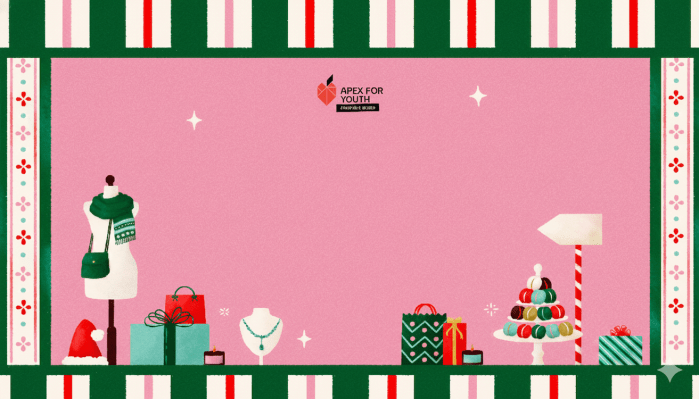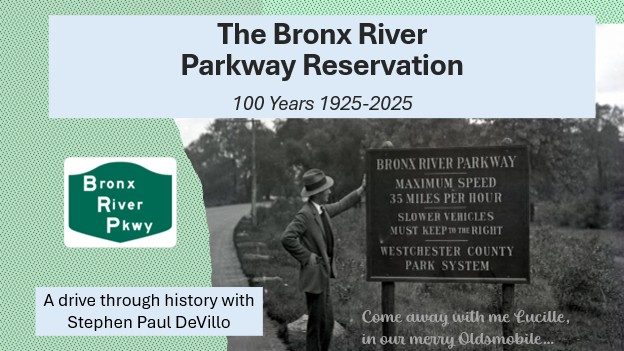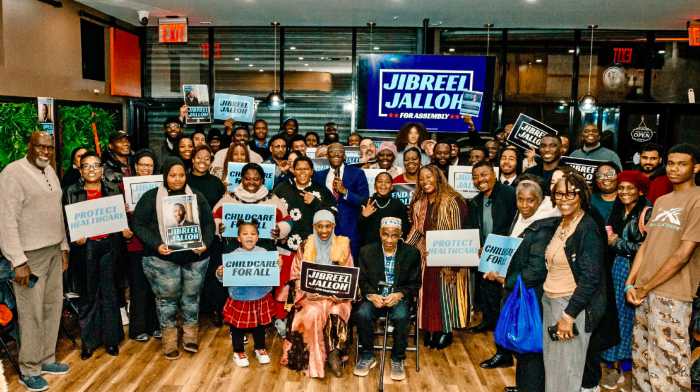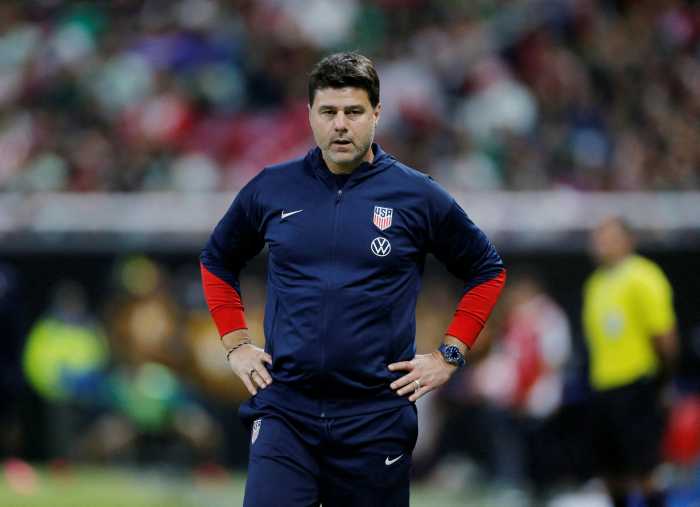Caribbean, gay, AIDS activists come together to battle hate lyrics in dancehall music
Julius Powell looked in both directions along 34th Street, nudged his eyeglasses up his nose and held his placard up higher. The sign read “No More Murder Music.”
It was just after dark on Friday, September 3. Powell and ten others were demonstrating outside the Hammerstein Ballroom, where a long line of concert-goers, most in their 20s, peacefully waited to enter a concert headlining the Jamaican dancehall music acts Beenie Man, Vybz Kartel, T.O.K. and Elephant Man.
With hit songs like Beenie Man’s “Battyman Fi Dead” and Vybz Kartel’s “Bedroom Slaughteration,” these artists’ lyrics explicitly advocate the murder of gay men and condemn homosexuality.
Dancehall, a form of popular music related to reggae, is currently Jamaica’s biggest cultural export. In U.S. cities including New York and Miami, where sizable communities of Caribbean immigrants and their descendants strongly influence the cultural landscape, dancehall music enjoys heavy radio airplay.
The Hammerstein Ballroom concert was sponsored by HOT 97, a top urban music radio station. And nationwide, this music is rapidly acquiring crossover appeal. Beenie Man (whose real name is Anthony Moses Davis) recently recorded a duet with Janet Jackson, while Elephant Man (O’Neil Bryan) is riding high on the North American success of his dance single, “Jook Gal.”
But according to Jamaican-born Powell, who has lived in New York for three years and is media liaison for the month-old No More Murder Music group, a coalition of activists affiliated with various Caribbean, gay and AIDS organizations, the U.S. music industry and entertainment venues like Hammerstein Ballroom must refuse to do business with dancehall acts whose music contains violent anti-gay content.
“I am asking for your support to cancel the tour of Beenie Man, who has repeatedly called for the murder of members of the lesbian, gay, bisexual and transgender community,” said Powell, a tall, trim man with the face of a schoolboy.
Beenie Man is currently on a 24-city tour of the U.S. and is scheduled to play the Chelsea nightclub Crowbar on October 10, according to VH1.com.
Hoping to get the concert at the Hammerstein Ballroom cancelled, No More Murder Music sent a letter dated August 18 to executives at both HOT 97 and the Manhattan Center Studios, proprietor of the Hammerstein Ballroom, urging them to consider the acts’ violent lyrics.
In a response dated August 25, Russell Arnold, CEO of Manhattan Center Studios, stated that his organization was not a sponsor of the event and “As part of our standard contract, Manhattan Center Studios is not at liberty to cancel any events based on a difference of opinion with the event organizer. Similarly, it would also be a breach of our contract to cancel an event based on claims that are brought to our attention.”
Powell said his organization received no reply from HOT 97. Gay City News was unable to reach HOT 97 for comment.
“This is a human rights concern for many [lesbian, gay, bisexual and transgender] people in Jamaica,” Powell said, noting that while violence against gay men and lesbians in Jamaica has reached an “acute and intolerable level,” potentially fueled by the pronouncements of dancehall artists, there have been no recorded cases of violence in the U.S. related to dancehall lyrics.
Powell’s claim puts an international spin on a familiar debate, one which over the last decade has in the U.S. involved recording artists from 2Live Crew to Marilyn Manson to Eminem; high profile advocates the likes of Tipper Gore, the former vice president’s wife; and tragic events such as the Columbine massacre.
The question is “Do violent music lyrics incite violence?”
And if so, does the music industry have a responsibility to police the music it produces and promotes?
The No More Murder Music group believes that dancehall music is the mouthpiece for pervasive anti-gay feelings embedded in the culture of Jamaica and that the lyrics of some artists tip the scale from sentiment over into actual violence.
According to Amnesty International, there have been over 50 murders of gays and lesbians in Jamaica since 1982 in which homophobia was proven to be at the root of hostility. In 1996, 17 prisoners suspected of being gay were murdered in the penal system after the Commissioner of Prisons merely suggested that condoms be distributed among the incarcerated. And in June of this year, Brian Williamson, a leader of JFLAG, the Jamaican Forum for Lesbians, All-Sexuals and Gays, was found butchered in his Kingston home.
The British gay organization Outrage! has spearheaded a campaign to expose and combat anti-gay lyrics in music exported from Jamaica.
In Britain, where Jamaican immigrant communities are more long-standing than in the U.S. and Jamaican music of all forms has enjoyed mass appeal for decades, the response to homophobic messages in the music has long been addressed. In 1994, the black British filmmaker Isaac Julien released “A Darker Side of Black,” a documentary exploring the roots of homophobia in both Jamaican dancehall and American hip hop. The documentary was inspired partly by an international controversy that year over the song “Boom Bye Bye” whose singer, a then 19-year-old, raspy voiced mc named Buju Banton (Mark Myrie), advocated shooting gay men in the head with Uzis. A decade later, Banton, now a major figure in the reggae world, is currently under investigation by Jamaican authorities for allegedly taking part in the June 24 beating of six gay men in Kingston.
“The perception is not only in England that Jamaica is homophobic,” said Powell. “This is the view shared by many. [I have] personally discussed the matter at international conferences in Brazil, Trinidad and Dominica.”
In recent months, dozens of venues across the U.S. and in Canada and Europe have canceled dancehall acts because of violent or offensive lyrics. Canadian promoters inked out Beenie Man’s tour scheduled to kick off this month in that country. The singer Bounty Killer (Rodney Price), whose single “Another Level” includes the line, “Bun a fire pon a puff and mister fagotty” (meaning burn a fire on puffs and faggots), has been cancelled from the line up at the Krakrock Festival in Avelgem, Belgium, on September 10 and 11.
Corporate sponsors backing artists are also getting cold feet and either canceling their contracts or issuing disclaimers or apologies from the artists. Tobacco giant RJ Reynolds, withdrew its sponsorship of Beenie Man’s tour. And while the artist’s record label Virgin Records hastily issued an apology on his behalf in early August, observers say it was merely a public relations stunt, citing the statement hours later on Jamaican radio by Beenie Man’s management company that it was “not an apology.”
The “no apology” stance has become something of a mantra in the ranks of dancehall’s hardcore following, with T-shirts now proclaiming the words as a stalwart defense of the artists and their license for inflammatory rhetoric.
“No apology” T-shirts could be spotted being worn and sold at booths at the West Indian American Labor Day Carnival in Brooklyn on September 6, the city’s largest outdoor gathering attended by an estimated 2 million revelers, most of Caribbean origin. Elephant Man appeared on a float advertising HOT 97.
New York is home to the country’s largest Caribbean population within which is a fiercely loyal dancehall fan base.
Powell acknowledges that No More Murder Music faces a composite challenge here—to address attitudes in the city’s Caribbean-American and dancehall enthusiast communities, while at the same time exert pressure on a music industry whose allegiances are not cultural, but corporate.
“Jamaicans are stuck in a world defined by the 1861 Offences Against the Person Act!” said Powell, referring to a 19th century statute which penalizes homosexual acts on the island with ten years of imprisonment and hard labor. “The country remains a closed society, which does not understand the importance of difference and has no concept of the Other!”
“In Jamaica, I stand to do more time for being gay than for selling drugs,” he continued.
A member of JFLAG himself, Powell said he experienced anti-gay hostility in his homeland first hand when his “home was stoned continuously for months,” even while he was living in one of Kingston’s gated, middle-class communities. Powell said that after he testified in a hearing to amend the Jamaican Constitution to include protections from discrimination for gays, lesbians and transgenders, he returned to work to find “my parking lot was written with the word ‘death.’”
The No More Murder Music group holds weekly strategy meetings, said Powell.
“We are strengthening the coalition and we have long-term plans to launch an education campaign,” he said. “That way we can solidify our base and keep pressure on these artists.”













